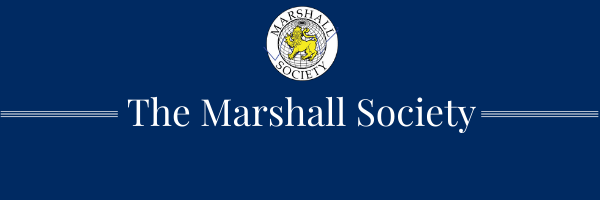Economic Surplus: Summer Holidays 6

Economic Surplus by The Marshall Society
2 October 2021
"The ultimate purpose of economics, of course, is to understand and promote the enhancement of well-being." ― Ben Bernanke
Welcome to the Economic Surplus, the newsletter brought to you by the Marshall Society! We are the University of Cambridge's flagship economics society. Every week, we bring you our bespoke commentary on economic trends, updates on our exclusive members' events as well as a summary of the headlines you can't ignore! You've probably received this email because you were previously subscribed to the Marshall Society's old email list, but if you have been forwarded this by a friend, feel free to subscribe here!
Announcing our new silver sponsor, RBB Economics
RBB Economics is a world leading economics consultancy specialising in competition matters, with offices in London, Brussels, Düsseldorf, Madrid, Paris, Stockholm and The Hague as well as in Australia and South Africa.
Their economists advise clients in their dealings with competition authorities across a range of industries. Working mainly for large global businesses, they develop, test and present economic arguments and provide independent economic reports on behalf of their clients to competition regulators and courts.
If you are interested in finding out more, RBB will be at the Economics Fair on the 15th October and will be hosting an event on the 21st October. Sign up here.
Punting & Prosecco
![punting banner[76].png](https://buttondown-attachments.s3.amazonaws.com/images/d3031246-f4cc-4220-a3a3-328ea903daf5.png)
We are delighted to invite you to our first social event of the academic year: Punting & Prosecco! Join us for a fun afternoon exploring the Cam by boat and try your hand at punting yourself. Please note, while the Cam is relatively tranquil, you should be able to swim in case you fall into the river.
The event will take place from 4 pm to 5:30 pm on Wednesday, 13th October at Scudamore’s Punting Station. Get your ticket here.
Marshall's Thoughts
This week’s Marshall’s Thoughts are written by Anya Gupta.
Earlier this week, Evergrande, one of China’s largest property developers announced that it was on the brink of bankruptcy as it has $300bn in total liabilities – a sum larger than the GDP of many countries.
What would Evergrande’s default mean for financial markets?
This news had caused a lot of jitters in financial markets as banks were worried that Evergrande’s inability to pay back its loans would have a knock-on effect on China’s financial system given the interconnected nature of financial markets – Evergrande’s potential default would create systemic risk.
Evergrande’s potential collapse has had people drawing some interesting comparisons. Will Evergrande be the next Lehman brothers where the government will not intervene to prevent moral hazard or will it be a Bear Stearns moment where the government steps in and manages the collapse?
This author believes that this will not be a Lehman moment. Given that the properties sector in China accounts for 25% of China’s GDP I think it’s unlikely that the government will just allow it to collapse. The Chinese authorities have already shown signs of being proactive and have injected $71bn of liquidity into the markets this week.
This week, even markets have been relatively okay – the Shanghai stock index is up 0.3% this week after being down -2.4% last week. It’s also important to keep the scale of the Evergrande crisis in perspective – $300 bn seems large in absolute terms but makes up only 2% of China’s GDP and it’s unlikely that they will default on the entire amount – the offshore bonds are trading at 25 cents to the dollar. Going forward, it’s going to be interesting to see whether or not history will repeat itself and highlights the importance of learning from past mistakes like the Lehman Brothers’ crisis.
In Case You Missed It:
AUKUS: How transatlantic allies turned on each other over China’s Indo-Pacific threat | FT - Biden’s security pact with UK and Australia will give a fresh impetus to a strategic alliance that would reshape security in Asia to contain China’s military aims. But, this would rip up a French-led $36bn contract and undercut Macron’s ambitions in the Indo-Pacific. France’s diplomatic retaliation has opened the biggest rift among western allies since 2003.
German election poll tracker: Who will be the next Chancellor? | The Guardian - As Germany heads to the polls they will be deciding who will succeed Angela Merkel, who will step down after 16 years as chancellor – leaving big shoes to fill. A two-way coalition between the conservative CDU and the German Greens had looked like the most likely outcome. However, in recent weeks, the SPD has performed well and the party has taken a lead in the latest polls.
Natural-gas shortages threaten governments’ green goals | The Economist - A global shortage of natural gas supplies have caused prices to soar in recent weeks, especially in Europe, due to factors such as booming demand in Asia coinciding with tight stocks of liquefied natural gas. Going forward, this presents a long term challenge to smooth out volatility as the switch to renewable energy sources continues.
Bitcoin and Ether slide as China intensifies crackdown on cryptocurrencies | CNBC - This week, the PBOC announced that all crypto-related activities are illegal. Following this, the price of bitcoin fell 5% to $42,496.12 while Ether, the second-largest digital currency, dropped 7% to $2921.53. Although China’s position on crypto is not new, this extreme announcement was enough to pressure the market.
That's it from us for now!
The Marshall Society